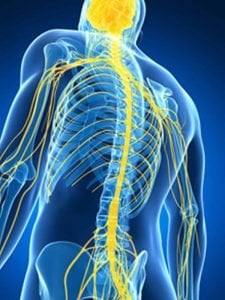Novel cognitive study shows improvement in self-awareness with task experience.
A new study of self-awareness by Kessler Foundation researchers shows that persons with multiple sclerosis (MS) may be able to improve their self-awareness through task-oriented cognitive rehabilitation. The study was epublished ahead of print on July 2 in NeuroRehabilitation. Self-awareness is one’s ability to recognize cognitive problems caused by brain injury. This is the first study of self-awareness in MS that includes assessment of online awareness, as well as metacognitive awareness.
Yael Goverover, PhD, OT, is a visiting scientist at Kessler Foundation. She is an associate professor at New York University. Dr. Goverover is a recipient of the National Institute on Disability and Rehabilitation Research Fellowship award (Mary Switzer Award). Drs. Genova, Chiaravalloti and DeLuca are MS researchers at Kessler Foundation.

The researchers assessed 18 people with MS and 16 healthy controls for 2 types of self-awareness – metacognitive knowledge of disabilities (or intellectual awareness) and online awareness (emergent or anticipatory awareness). They also looked at the relationships among self-awareness, functional performance and quality of life (QoL). Assessment involved the Functional Behavior Profile, questionnaires administered before and after functional tasks (purchasing cookies and airline tickets via the Internet) and the Functional Assessment of Multiple Sclerosis measure.
“Results showed that compared with controls, people with MS assessed their actual performance more realistically following completion of a task. This suggests that individuals may be able to improve their self-awareness through more experience with tasks,” noted Nancy Chiaravalloti, PhD, director of Neuropsychology & Neuroscience Research at Kessler Foundation.
“Research that leads to better understanding of types of self-awareness, functional outcomes and QOL will aid the development of effective assessments and rehabilitation interventions,” said Dr. Chiaravalloti. “The association between online awareness and task performance in this study, for example, may have implications for cognitive rehabilitation strategies in the MS population.”
Notes about this multiple sclerosis research
Supported by the National Multiple Sclerosis Society [RG 3935A2/2 & PP1331]
Contact: Carolann Murphy – Kessler Foundation
Source: Kessler Foundation press release
Image Source: The image is adapted from an NIH image and is in the public domain
Original Research: Abstract for “Metacognitive knowledge and online awareness in persons with multiple sclerosis” by Yael Goverover, Helen Genova, Griswold Hali, Nancy Chiaravalloti, and John DeLuca in NeuroRehabilitation. Published online July 2 2014 doi:10.3233/NRE-141113






